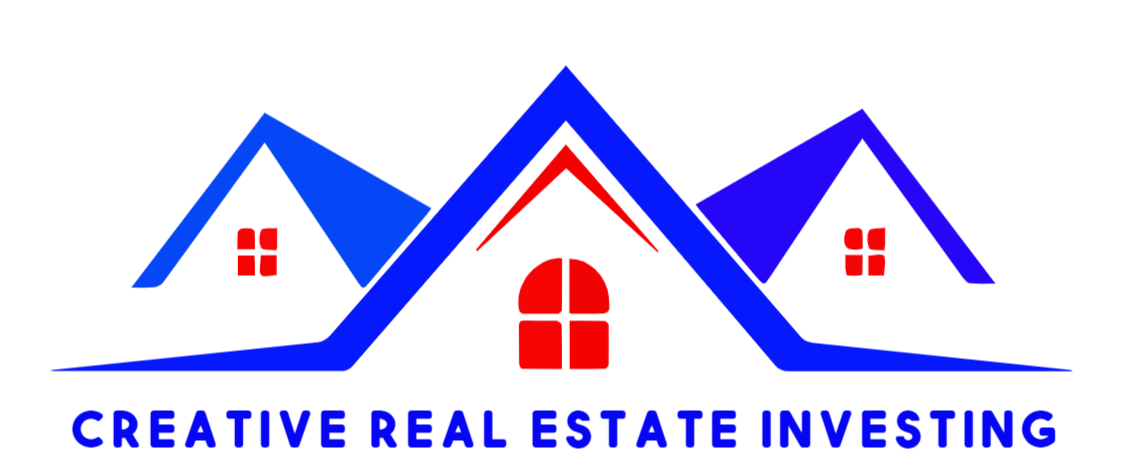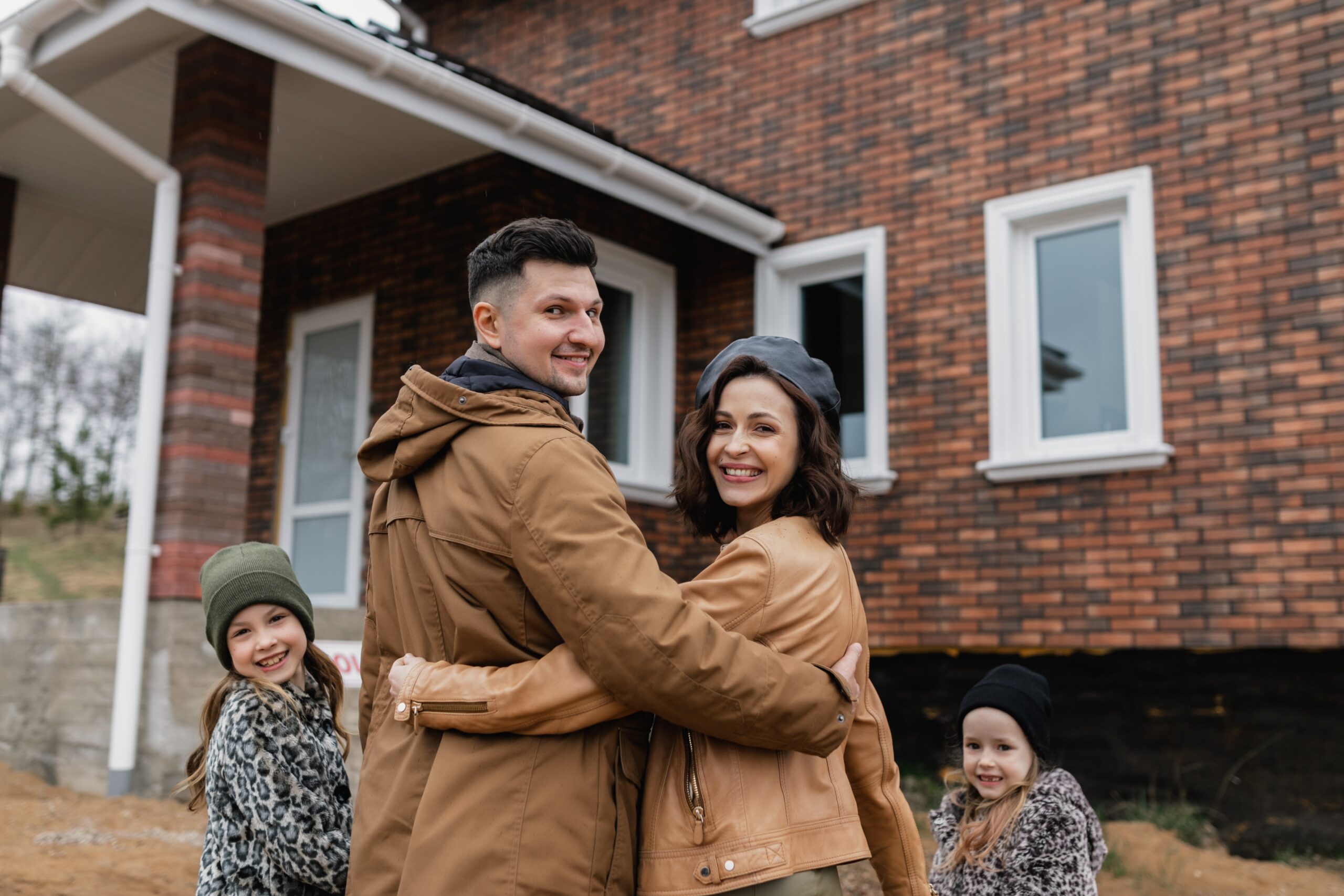Are you ready to buy a house but hesitant to hire a realtor? You’re not alone. Many people choose to buy a house without a realtor to save money on commissions. However, buying a house without a realtor can be a daunting task, especially if you’re a first-time homebuyer. In this article, we’ll guide you through the process of buying a house without a realtor, step-by-step.
This is my 7th installment in the series from the article, 8 Tips To Purchase Your Dream Home. We will be discussing Tip 7: The Home Search. I am mainly focusing on the first-time would-be homeowner who would begin his homeownership as a tenant-buyer, a kind of homeowner in training. However, these tips will be helpful for anyone who wants to purchase a home using creative techniques.
Understanding the home-buying process is crucial if you’re planning to buy a house without a realtor. You’ll need to research the market, inspect potential homes, make an offer, and close the deal. It’s important to note that buying a house without a realtor doesn’t mean you’re on your own. You can still hire a real estate attorney to help you with the legal aspects of the transaction. With a bit of research and preparation, you can successfully buy a house without a realtor and save money on commissions.
Key Takeaways
- Buying a house without a realtor can save you money on commissions, but it requires understanding the home-buying process.
- Researching the market, inspecting potential homes, making an offer, and closing the deal are crucial steps in buying a house without a realtor.
- Consider hiring a real estate attorney to help you with the legal aspects of the transaction.
Understanding the Home Buying Process
When you decide to buy a house without a realtor, it is important to understand the home-buying process. This will help you make informed decisions and avoid costly mistakes. Here are two crucial sub-sections that will help you navigate the process.
Deciding on a Budget
Before you start looking for a house, you need to decide on a budget. This will help you narrow down your options and avoid wasting time on houses that are out of your price range. To determine your budget, you should consider the following:
- Your income
- Your expenses
- Your debts
- Your credit score
Once you have a clear understanding of your financial situation, you can use a mortgage calculator to estimate how much house you can afford. Keep in mind that you will also need to factor in closing costs and other expenses associated with buying a house.
Understanding Mortgage Options

When you buy a house without a realtor, you will need to secure financing on your own. There are several mortgage options available, each with its own pros and cons. Here are a few to consider:
- Fixed-rate mortgage: This is a popular option because it offers a predictable monthly payment. The interest rate remains the same for the life of the loan.
- Adjustable-rate mortgage: This type of mortgage has an interest rate that can fluctuate over time. It may start out lower than a fixed-rate mortgage, but it can also go up.
- FHA loan: This is a government-backed loan that is designed to help first-time homebuyers. It requires a lower down payment and credit score than other types of loans.
- VA loan: This is a loan that is available to veterans and active-duty military members. It requires no down payment and has lower interest rates than other types of loans.
By understanding your budget and mortgage options, you can make informed decisions when buying a house without a realtor.
Researching the Market
When buying a house without a realtor, researching the market is crucial to ensure that you make an informed decision. Here are two sub-sections that will help you in your research:
Identifying Desired Neighborhoods
Before you start looking at houses, you need to identify the neighborhoods that you are interested in. Consider factors such as proximity to work, schools, shopping centers, and public transportation. You might also want to look into the crime rates and the overall safety of the neighborhood.
To help you narrow down your options, make a list of your top priorities and use online tools to search for neighborhoods that meet those criteria. You can also drive around different neighborhoods to get a feel for the area and see if it aligns with your preferences.
Comparing Home Prices
Once you have identified the neighborhoods that you are interested in, it’s time to start comparing home prices. Look at the prices of similar homes in the area, and take note of any trends or patterns.
You can use online tools to search for homes in your desired neighborhoods and compare prices. Keep in mind that some homes may be priced higher or lower than others due to factors such as the condition of the home or the seller’s motivations.
When comparing home prices, it’s essential to stay within your budget. Determine how much you can afford to spend on a home, and stick to that budget. Remember that there are other costs associated with buying a home, such as closing costs and property taxes, so make sure to factor those in when determining your budget.
By identifying your desired neighborhoods and comparing home prices, you can make an informed decision when buying a house without a realtor.
Inspecting Potential Homes
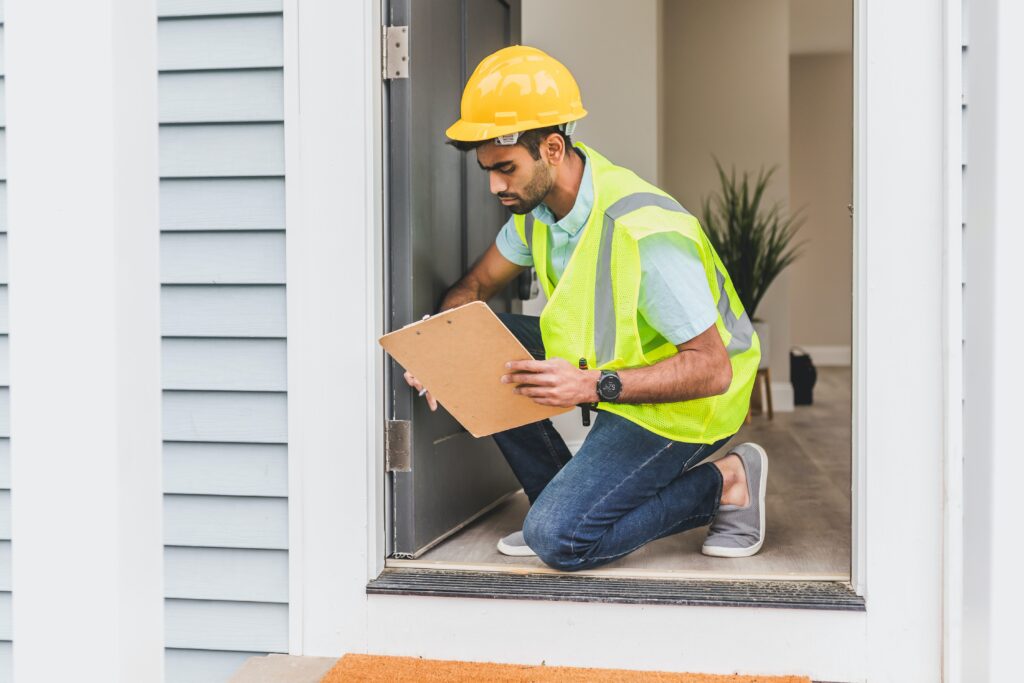
When you’re buying a house without a realtor, it’s important to know how to inspect potential homes. Here are some things to keep in mind.
Evaluating Home Conditions
Before you make an offer on a house, you’ll want to evaluate the condition of the home. Here are some things to look for:
- Structural Issues: Check for cracks in the foundation, uneven floors, and any other signs of structural damage.
- Roof Condition: Look for missing or damaged shingles, signs of leaks, and other issues with the roof.
- Plumbing and Electrical: Test all the faucets and outlets to make sure they’re working properly.
- HVAC System: Check the age and condition of the heating and cooling system.
Considering Future Home Improvements
When you’re buying a house without a realtor, you’ll also want to consider any future home improvements you might want to make. Here are some things to think about:
- Kitchen and Bathrooms: If you’re planning to update the kitchen or bathrooms, make sure you have a good idea of what that will cost.
- Flooring: Consider the cost of replacing flooring if it’s not in good condition.
- Landscaping: If you want to make changes to landscaping, think about the time and cost involved.
- Painting: If you want to paint the interior or exterior of the house, factor in the cost of paint and supplies.
By evaluating the condition of the home and considering any future improvements, you can make an informed decision about whether or not to make an offer. Remember to take your time and thoroughly inspect each potential home before making a decision.
Making an Offer
When you’ve found a house you want to buy, it’s time to make an offer. This can be a nerve-wracking process, but it’s important to stay calm and focused. Here are some tips to help you make a successful offer without a realtor.
Determining a Fair Offer
The first step in making an offer is to determine a fair price for the house. You can do this by researching the local real estate market and finding out what similar houses in the area are selling for. You can also get an idea of the house’s value by looking at its condition, age, and any upgrades or renovations that have been made.
Once you have an idea of the house’s value, you can make an offer that is fair but also takes into account any repairs or upgrades that need to be made. You may also want to consider any contingencies you want to include in the offer, such as a home inspection by a certified home inspector or financing contingency.
Negotiating with the Seller
Once you’ve made an offer, the seller may accept it, reject it, or make a counteroffer. If the seller makes a counteroffer, you can negotiate until you reach a mutually acceptable price.
During negotiations, it’s important to stay calm and respectful. Avoid making lowball offers or getting too emotionally invested in the process. Remember, the goal is to reach a fair price that both you and the seller are happy with.
When you’ve reached an agreement, it’s time to move forward with the purchase. You’ll need to sign a purchase agreement and provide a deposit to show your commitment to the sale. From there, you can move forward with the closing process and prepare to move into your new home.
Closing the Deal
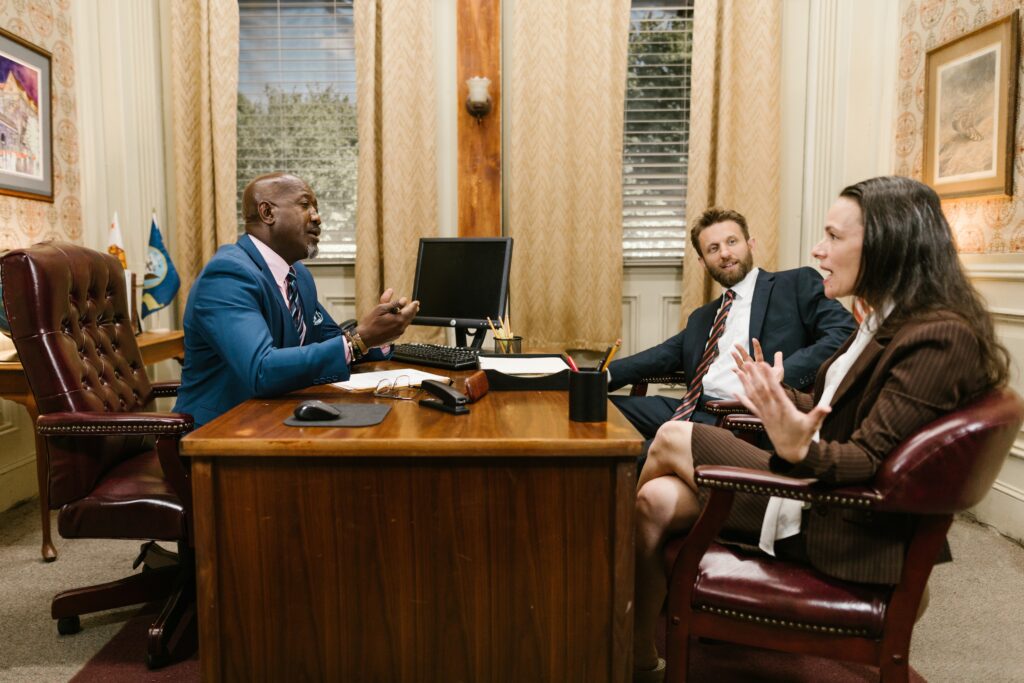
After you’ve found the perfect house and negotiated the price, it’s time to close the deal. This is the final step in the home-buying process, and it can be a bit overwhelming if you’re doing it without a realtor. But don’t worry, we’ve got you covered.
Understanding Closing Costs
Closing costs are the fees and expenses associated with finalizing the purchase of your new home. These costs can vary depending on the location of the property, the price of the home, and other factors. Here are some common closing costs you can expect to pay:
- Title insurance
- Appraisal fees
- Home inspection fees
- Attorney fees
- Loan origination fees
- Recording fees
- Transfer taxes
It’s important to budget for these costs so you’re not caught off guard when it’s time to close. You can ask the seller to cover some or all of these costs, but it’s not guaranteed they will agree.
Finalizing the Purchase
The final step in the home-buying process is finalizing the purchase. This is where you’ll sign all the paperwork and officially become the owner of the property. Here’s what you can expect during this process:
- Review the closing disclosure: This document will outline all the costs associated with the purchase of your new home. Make sure everything looks correct before you sign.
- Get a cashier’s check: You’ll need to bring a cashier’s check to cover the down payment and closing costs.
- Sign the paperwork: You’ll need to sign a lot of paperwork, including the mortgage agreement, the deed, and other legal documents.
- Get the keys: Once everything is signed and the funds have been transferred, you’ll get the keys to your new home.
Congratulations! You’ve successfully bought a house without a realtor. It’s a big accomplishment, but it’s just the beginning of your journey as a homeowner. Enjoy your new home!
Consider a Lease with the Option to Purchase

If you’re not quite ready to commit to buying a house outright, consider a lease with the option to purchase. This arrangement allows you to rent a property for a set period of time, with the option to buy the property at the end of the lease term.
Even though the tenant/buyer has not closed on the property, he entered into the contract with the intention to buy the house. So in effect, he sees the home as his, and to him, it is as good as sold!
In my opinion, this is one of the best ways to buy a home if the buyer is credit and financially challenged and needs time to save up for a down payment and improvement his credit.
One of the biggest advantages of a lease with the option to purchase is that it gives you time to save up for a down payment or improve your credit score. It also allows you to get a feel for the neighborhood and the property before making a long-term commitment.
When considering a lease with the option to purchase, it’s important to read the contract carefully and understand the terms. Make sure you know how long the lease term is, how much the rent will be, and how much of that rent will be applied to the purchase price if you decide to buy.
You should also consider hiring a real estate attorney to review the contract and ensure that your interests are protected. Additionally, it’s a good idea to have the property inspected before signing any agreements.
Overall, a lease with the option to purchase can be a great way to get into a home without the help of a realtor. Just be sure to do your due diligence and fully understand the terms of the agreement before signing on the dotted line.
Frequently Asked Questions
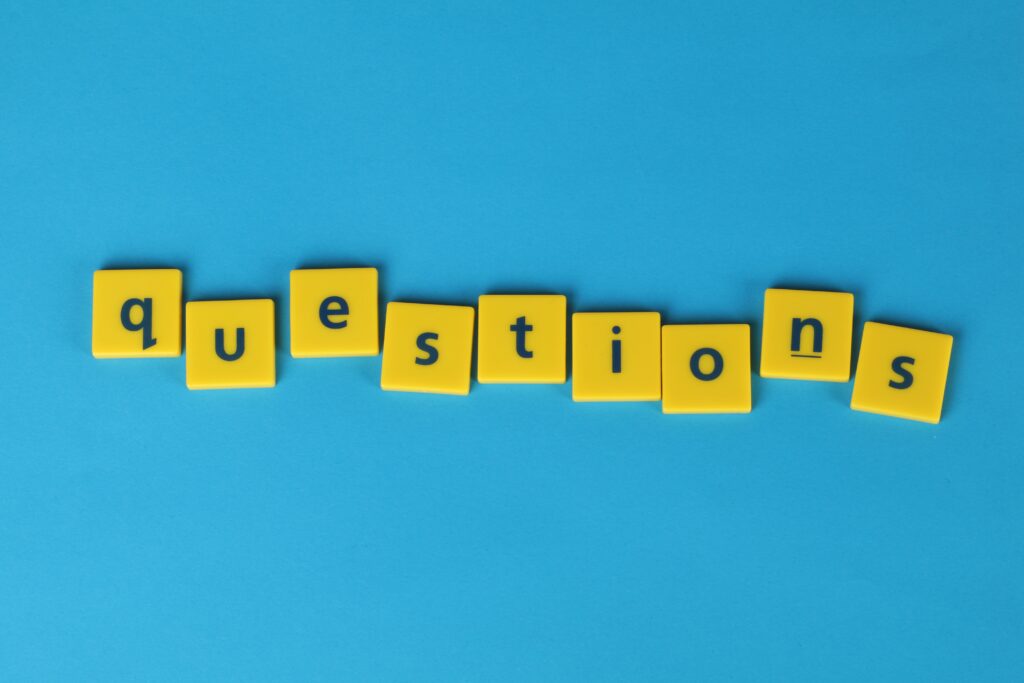
What are the potential risks of buying a house without a realtor?
Buying a house without a realtor can be risky. You may end up overpaying for the property or missing important details that could cost you money in the long run. Additionally, without a realtor, you may not have access to all of the information you need to make an informed decision.
What are the benefits of buying a home without a realtor?
Buying a home without a realtor can save you money on commission fees. You also have more control over the process and can negotiate directly with the seller. Additionally, you can avoid the pressure of working with a realtor who may be more interested in making a sale than finding you the right home.
How can I find homes for sale without using a realtor?
There are many ways to find homes for sale without using a realtor. You can search online for listings, attend open houses, or drive around neighborhoods you’re interested in to look for “For Sale” signs. Additionally, you can work with a real estate attorney who can help you find properties that are not listed on the market.
What are the steps to buying a house without a realtor?
The steps to buying a house without a realtor are similar to those with a realtor. You’ll need to get pre-approved for a mortgage, find a property you’re interested in, make an offer, negotiate the price and terms, and close the deal. However, without a realtor, you’ll need to handle all of the paperwork and legal details yourself.
Can I negotiate the price of a house without a realtor?
Yes, you can negotiate the price of a house without a realtor. In fact, negotiating directly with the seller can give you more leverage to get a better deal. However, you’ll need to do your research and be prepared to make a strong case for why you’re offering a lower price.
What should I know about the legal paperwork when buying a house without a realtor?
When buying a house without a realtor, you’ll need to handle all of the legal paperwork yourself. This includes drafting a purchase agreement, reviewing title reports, and arranging for a home inspection. It’s essential to work with a real estate attorney who can guide you through the process and ensure that all of the necessary paperwork is completed correctly.
Thanks for your support and for taking the time to continue this journey with me. I really do appreciate it.
Don
The lease Purchase Investor
I’m real estate investor, self-improvement coach, author, and publisher, Don Mayer. I would love to connect further with you to help you achieve your goals. If you are interested in learning more about lease purchasing a home, please take a look at my entry-level rent-to-own guide, “The Ultimate Home-Finder’s Workbook”, and consider coming aboard and learning the steps to moving into a home of your own!
